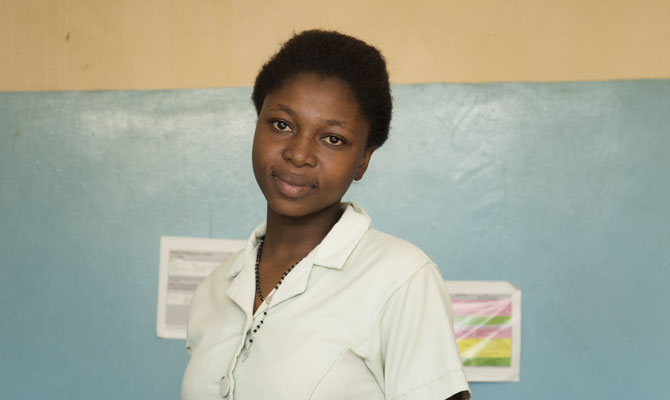International Day of ZERO TOLERANCE for FEMALE GENITAL MUTILATION
CUAMM’s staff operating in Sierra Leone confirms that the phenomenon is present as the majority of women arriving to hospitals and health centers have been mutilated.

Female Genital Mutilation (FGM) is one of the contemporary internationally recognized form of violation of human rights of girls and women. It includes all procedures that intentionally alter or injure the female genital for non-medical reasons. Nowadays, more than 200 million girls and women alive have been cut in 30 countries in Africa, the Middle East and Asia where FGM is concentrated. The mutilation is mostly carried out on girls between infancy and age 15.
The procedure has several immediate and long-term consequences on women health, on their reproductive health and on the health of their children. For instance, it can cause severe bleeding and problems urinating, later cysts, infections, as well as complications in childbirth and increased risk of newborn deaths.
Reasons behind these practices include a mix of sociocultural factors within families and communities: social convention, cultural beliefs and traditions. Therefore, in order to end FGM, collective, coordinated and systematic efforts are needed to engage communities and emphasize societal dialogue. In particular, intervention strategies must address sexual and reproductive health needs of women and girls who suffer from its consequences and they must be developed and implemented in a way that is sensitive to the cultural and social background of the communities that practice it.
FGM IN SIERRA LEONE
In Sierra Leone, one of the country where CUAMM operates, FGM is still widely practiced. No updated data on FMG have been published and the last Demographic and Health Survey (2013) showed that 90% of women have undergone some form of circumcision.
CUAMM’s staff operating in Sierra Leone confirms that the phenomenon is present as the majority of women arriving to hospitals and health centres have been mutilated. FGM is indeed part of the traditional culture of most ethnic groups in Sierra Leone, while it is not strictly related to religion. The only ethnic group not practicing FGM are the Crios, descendants of Jamaican slaves who moved to the Freetown area in the XVIII century.
In the recent years, a lot of public discussions on FGM happened in Sierra Leone. Activists and campaigners in the country continue to fight against the culturally embedded practice, including efforts towards national legislation. The government has been active as well: a ban against FGM has been put in place during the Ebola outbreak in 2014 leading to a significant reduction of the FGM practice among children and a new temporary ban on all initiation until 31 March 2018 has been recently announced by the Minister of Local Government and Rural Development.
Measures should take into account the fact that FGM is a sensitive topic deeply rooted in the culture and hierarchy of the country. Behaviours can change without giving up meaningful cultural aspects if dialogue around alternative rites of passage is developed.
Ending FMG in Sierra Leone implies developing interlinked strategies implemented by several actors: the government, activists, campaigners and faith-based organization. Working together will increase the chance to reach out to communities and facilitate public education on the theme. Meanwhile, CUAMM will continue to provide health services to all mothers and newborns, with particular attention to those who undertook FGM.
Join us
Join our efforts
Charity gifts
Go to the Italian website to choose your gadget.